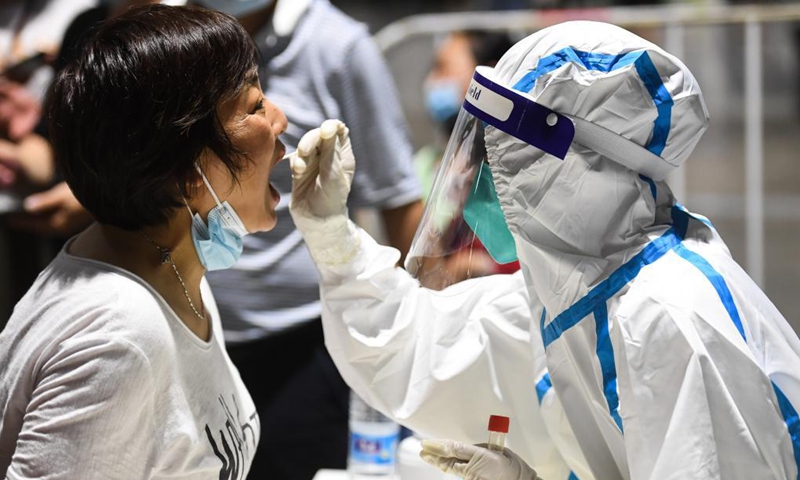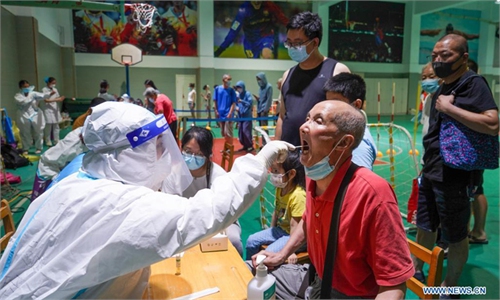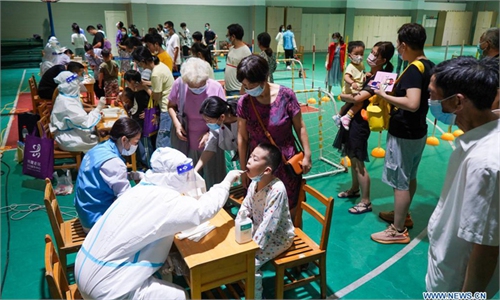
A medical worker takes a swab sample from a woman for COVID-19 test at a testing site in Nanjing, east China's Jiangsu Province, July 21, 2021. Photo: Xinhua
Delta variant was detected in the latest epidemic spike in Nanjing, East China's Jiangsu Province, local authorities said. The city reported 31 new locally-transmitted cases on Tuesday, bringing the total infections to 112, including 106 confirmed cases and six asymptomatic ones.
Most of the newly reported cases were from key management areas, and are related to the Lukou airport, where infections were first found. A third round of nucleic acid screening test has been rolled out in related districts, the city health authorities said during a press briefing on Tuesday.
The Delta variant is detected in the latest spike, with advanced adaptability to the human body, faster transmission speed, and a higher viral load. Patients infected with the variant are more likely to have severe symptoms, authorities said.
Five provinces and nine cities have reported cases related to the Nanjing flare-up, including South China's Guangdong Province, Southwest China's Sichuan Province, East China's Anhui Province and Northeast China's Liaoning Province.
The city dialed up epidemic risk levels on Monday, bringing the number of high-risk areas to four, and medium-risk areas to 25.
Entrances and exits for all residential communities in Nanjing are being strictly controlled, banning all package or food deliveries from entering.
Starting from Tuesday, Nanjing suspended the operation of eight long-distance bus stations, as well as the city's bus tour services. Some 19 bus lines that had routes traveling to adjacent areas were limited within the city, and taxis are required not to leave the city.
Global Times


